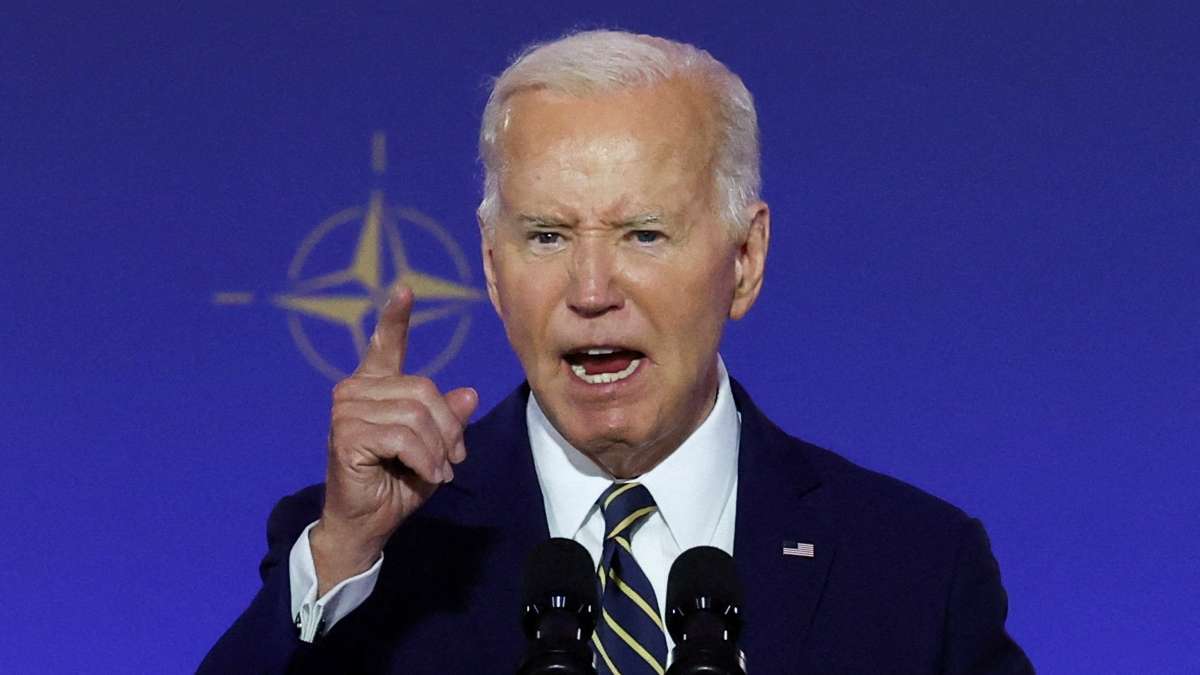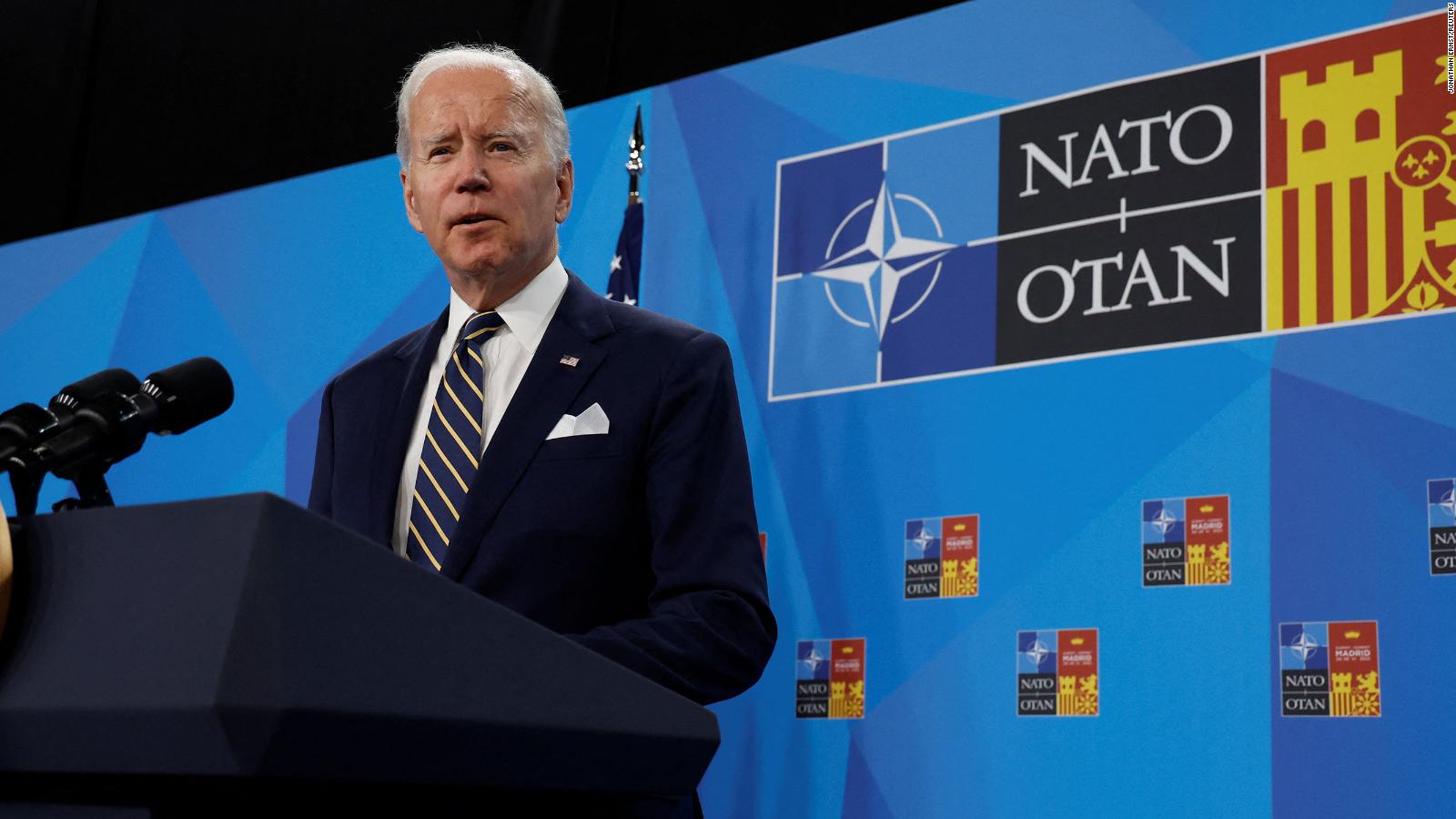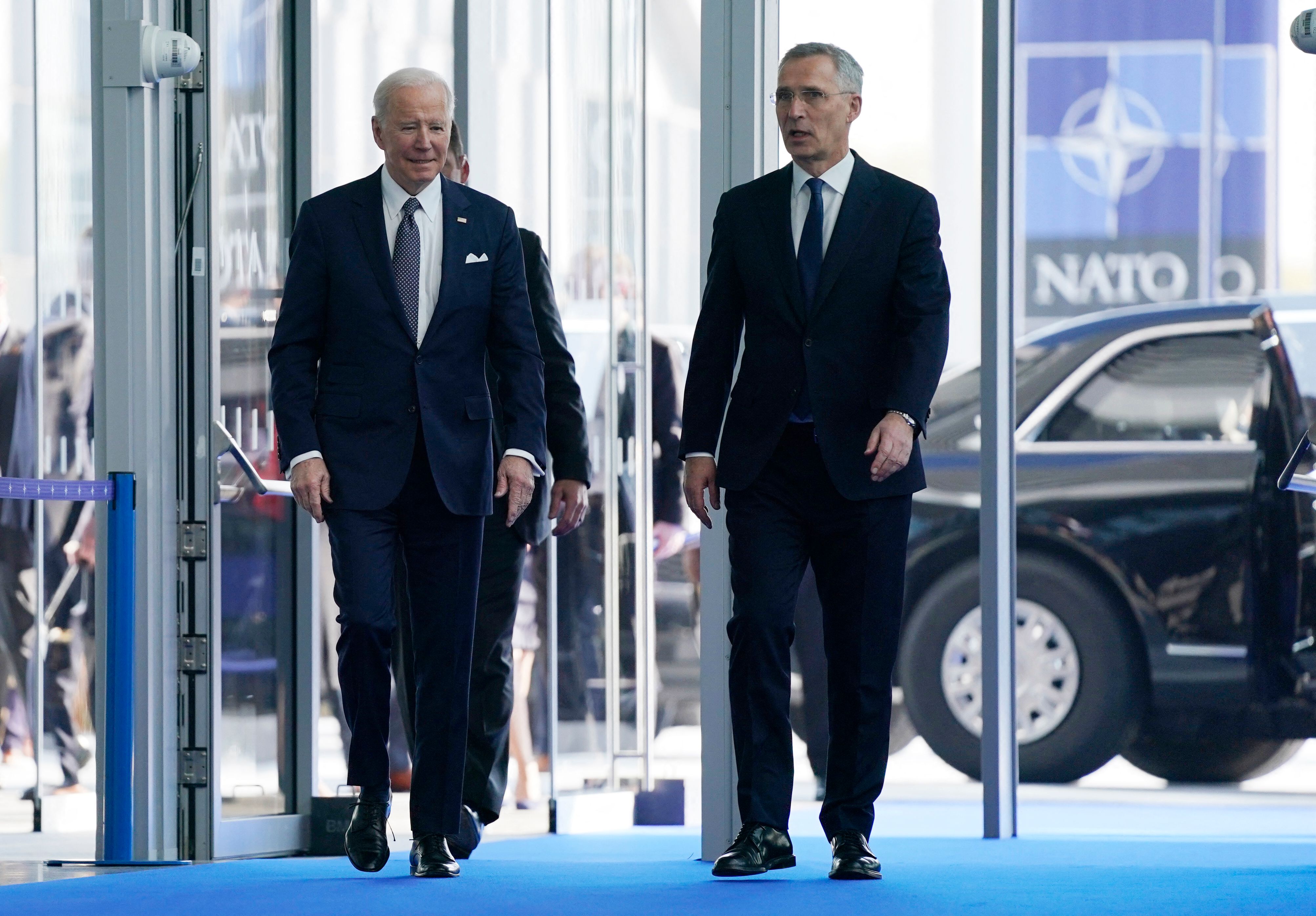Biden’s Role in NATO

Biden nato – President Biden has played a vital role in strengthening NATO and reaffirming the United States’ commitment to the alliance. Under his leadership, NATO has become more united and effective in responding to global challenges.
Biden’s recent NATO summit highlighted the importance of collective defense in the face of Russian aggression. Senator Mark Warner , a leading voice on foreign policy, emphasized the need for continued support for Ukraine and the strengthening of NATO’s eastern flank.
Biden’s leadership in galvanizing the alliance demonstrates the enduring power of transatlantic cooperation in safeguarding global security.
One of Biden’s key initiatives within NATO has been to increase burden-sharing among member states. He has called on allies to increase their defense spending and contribute more to NATO’s collective defense capabilities. This has helped to ensure that NATO has the resources it needs to meet the challenges of the 21st century.
Biden’s Contributions to NATO’s Unity and Effectiveness
Biden has also worked to strengthen NATO’s political unity. He has held regular summits with NATO leaders and has consulted closely with allies on a range of issues, including the war in Ukraine, the rise of China, and the threat of terrorism. This has helped to build trust and cooperation among NATO members and has made the alliance more effective in addressing common challenges.
In a recent NATO summit, President Biden has reaffirmed the alliance’s commitment to collective defense. For the latest updates on the President’s engagements, visit biden news today. Amidst global uncertainties, NATO’s resolve under President Biden’s leadership remains unwavering.
Biden’s Efforts to Strengthen NATO’s Capabilities and Readiness
In addition to increasing burden-sharing and strengthening political unity, Biden has also taken steps to strengthen NATO’s military capabilities and readiness. He has increased the number of US troops deployed to Europe and has worked with allies to develop new and more effective defense technologies. This has helped to deter potential aggressors and has made NATO more capable of responding to any threat.
NATO’s Response to Russia’s Invasion of Ukraine

In response to Russia’s invasion of Ukraine, NATO has undertaken a comprehensive and unprecedented collective response. The invasion has profoundly impacted NATO’s cohesion and strategic outlook, galvanizing the alliance and leading to a reassessment of its priorities and capabilities.
Military Support for Ukraine
NATO has provided Ukraine with significant military support, including weapons, ammunition, and training. The alliance has also deployed additional forces to its eastern flank, bolstering its deterrence posture against potential Russian aggression.
Economic and Financial Sanctions, Biden nato
NATO member states have imposed sweeping economic and financial sanctions on Russia, targeting its banking system, energy sector, and key individuals. These sanctions aim to cripple Russia’s economy and limit its ability to finance its war effort.
Diplomatic and Political Measures
NATO has engaged in extensive diplomatic and political efforts to isolate Russia internationally. The alliance has condemned Russia’s aggression, suspended its participation in various international fora, and coordinated with other international organizations to provide humanitarian and financial assistance to Ukraine.
Impact on NATO’s Cohesion and Strategic Outlook
Russia’s invasion of Ukraine has had a profound impact on NATO’s cohesion and strategic outlook. The invasion has strengthened the alliance’s unity and resolve, demonstrating the importance of collective security. It has also prompted NATO to reassess its deterrence and defense capabilities, leading to increased defense spending and the adoption of new strategic concepts.
The Future of NATO Under Biden’s Presidency: Biden Nato

President Biden has pledged to revitalize NATO and strengthen its role in global security. He believes that NATO is essential for deterring Russian aggression, countering China’s rise, and promoting democracy and human rights around the world.
Biden has already taken several steps to strengthen NATO. He has increased US military spending, recommitted to the Article 5 mutual defense clause, and launched a new initiative to modernize NATO’s military capabilities. He has also worked to improve relations with Turkey, a key NATO ally that has been strained in recent years.
However, NATO faces a number of challenges in the coming years. Russia continues to pose a threat to NATO members in Eastern Europe, and China is rapidly expanding its military power. NATO must also adapt to new threats, such as cyberattacks and terrorism.
Despite these challenges, NATO remains a vital alliance for the United States and its allies. Biden’s leadership will be crucial in shaping NATO’s future and ensuring that it remains a strong and effective force for global security.
Biden’s Vision for NATO
Biden believes that NATO should be a “stronger, more capable, and more united” alliance. He wants NATO to be able to deter Russian aggression, counter China’s rise, and promote democracy and human rights around the world.
To achieve these goals, Biden has proposed a number of initiatives, including:
- Increasing US military spending
- Recommitting to the Article 5 mutual defense clause
- Launching a new initiative to modernize NATO’s military capabilities
- Improving relations with Turkey
Biden’s vision for NATO is ambitious, but it is also necessary. NATO is facing a number of challenges in the coming years, and Biden’s leadership will be crucial in shaping NATO’s future and ensuring that it remains a strong and effective force for global security.
Challenges Facing NATO
NATO faces a number of challenges in the coming years, including:
- Russian aggression
- China’s rise
- Cyberattacks
- Terrorism
Russia continues to pose a threat to NATO members in Eastern Europe. In 2014, Russia annexed Crimea and has since been supporting separatists in eastern Ukraine. Russia has also been accused of interfering in the 2016 US presidential election and of carrying out cyberattacks against NATO members.
China is rapidly expanding its military power and is becoming increasingly assertive in the Asia-Pacific region. China has been accused of building military bases on disputed islands in the South China Sea and of intimidating its neighbors. China has also been accused of hacking into US government and military computers.
Cyberattacks are a growing threat to NATO members. In recent years, there have been a number of high-profile cyberattacks against NATO members, including the 2014 hack of the US Office of Personnel Management and the 2017 hack of the German Bundestag.
Terrorism remains a major threat to NATO members. In recent years, there have been a number of terrorist attacks in NATO countries, including the 2015 Paris attacks and the 2017 Manchester Arena bombing.
Recommendations for Biden
Biden can further strengthen NATO’s role in global security by:
- Continuing to increase US military spending
- Working with NATO allies to develop new military capabilities
- Improving relations with Turkey
- Encouraging NATO to play a more active role in promoting democracy and human rights around the world
Biden’s leadership will be crucial in shaping NATO’s future and ensuring that it remains a strong and effective force for global security. By working with NATO allies, Biden can help NATO meet the challenges of the 21st century and continue to play a vital role in promoting peace and security around the world.